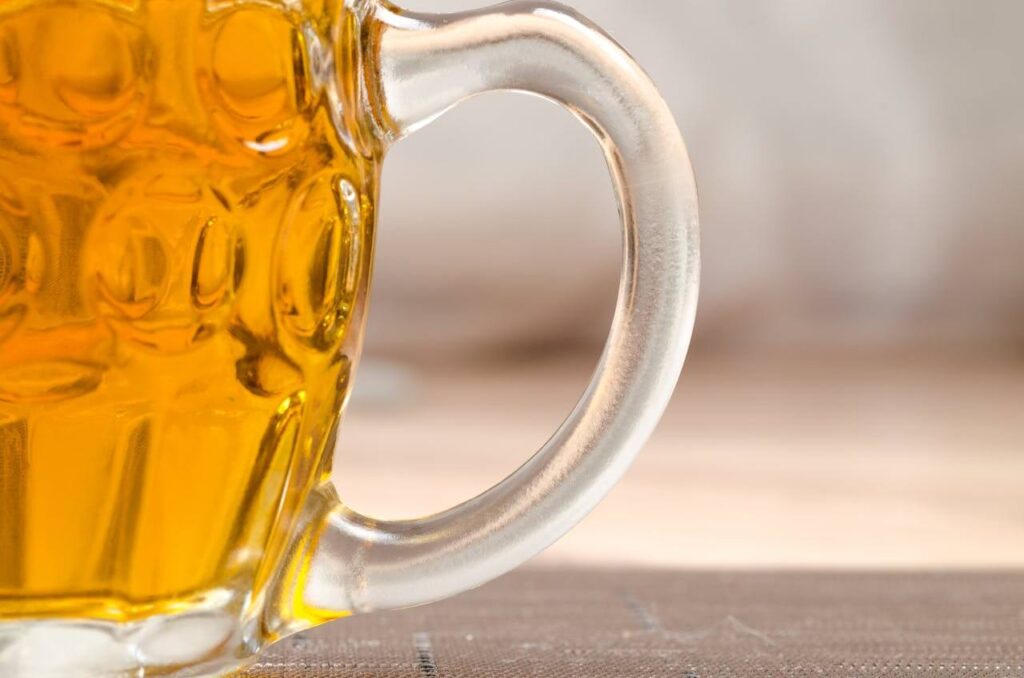
Table of Contents
It is not only the environmental factors that influence the individual to depend on alcohol but also the genetic predisposition from the parents.
Genetic Factors that Lead to Alcoholism and Alcohol Addiction
Various environmental factors contribute to addiction to alcohol and becoming dependent on alcohol. In addition, the genetics of an individual also play a crucial role in developing a habit towards alcohol dependency.
Research and studies reveal that around 50 % of the genetic properties of individual contribute to their dependency on alcohol.
An understanding of how genetics play a role in creating alcohol dependency will help to make a tailor-made plan for the individual under treatment. This will result in a better and smarter recovery from the claws of addiction.
Family History: Alcohol Addiction and Alcohol Use Disorder
During the treatment, the professional must seek the individual’s family history. The family history includes the data regarding whether any of the family members had experienced the issue of Alcohol Use disorder and had any recovery happened. The history of family addiction can contribute to the individual desire to engage in drinking alcohol.
The genetic factors of the individual affect the individual’s craving to drink alcohol. To explain this in simple words, consider a person with genetic factors of a particular disease passed on to the individual. Now, the individual is more susceptible to being affected by that disease than others. Similarly, in the case of alcoholism, the genetic factors deposited in an individual can make the individual more prone to Alcohol Use Disorder (AUD).
The Hereditary Nature of Alcoholism
Other than the deposition of genetics on the individual, children always learn various things from their elders. Children witnessing their elders drinking alcohol and enjoying it may create an impression on them that alcohol is something used for pleasure.
This impression will remain in them, and they may try to get the same pleasure by consuming it when they can. Something that was started just for pleasure will later become an addiction. Alcohol is now used to control all emotions and evade the world of stress and tension.
It is important to understand the hereditary characteristics of the individual undergoing treatment. Thorough identification will help in the course of the treatment and result in better results. It is also important to avoid the chances of an individual getting addicted.
Genetic Influence on Alcohol Dependence
There are many researches and studies which explain how genetics cause a tendency to drink alcohol. Understanding this can help prevent your loved ones from stopping drinking and getting addicted to alcohol.
Firstly, genetics are deposited in individuals from their parents. These genes may be slightly different and react differently to various chemicals inside the brain.
The deposited genes behave differently and can influence the body’s response to alcohol. Behavior also changes when visually appreciating somebody consuming it. The brain may process this information so that the individual is forced to drink alcohol, taste it, and experience it.
Other environmental factors can also influence the individual’s consumption of alcohol. Peer pressure or a society where consuming alcohol is seen as normal can influence the individual. These factors act as stimuli to the deposited genes in the individual’s brain.
The deposited genes may make the individual more sensitive to alcohol and result in increased consumption or binge drinking over some time. This continued alcohol consumption will make the individual deeply dependent on alcohol.

The Biology Behind Alcohol Use Disorder
Various chemical reactions happen in our brains for various functions of the human body. Alcohols and drugs affect the normal working of these chemicals and induce behavioral changes. Some of these genes may be passed down from their parents and cause reactions to the brain’s neurotransmitters.
Brain Chemistry of People with Alcohol Use
The human brain works on the reward system, which makes the individual achieve various goals. A person addicted to alcohol, on consuming it, will react with the brain’s neurotransmitters and create a chemical called Dopamine. This is the chemical responsible for creating pleasure in the human body.
On excessive alcohol use or alcohol misuse, dopamine is induced inside the brain in large amounts, creating pleasure for the individual. This will make the individual use alcohol despite the risk of alcohol consumption and associated damages.
Drinking too much alcohol will create an imbalance of all the chemicals inside the brain. This will make the individual behave differently, displaying aggression and sudden mood changes. Alcohol intoxication is a result of extensive use, as the tolerance level increases on repeated consumption.
How Alcohol Affects the Neuro Transmitters of the Brain
These transmitters are the chemicals that help in the transmission of messages or can be called the messages of the brain, which transmit signals. When blood alcohol concentration increases, a chemical reacts with the neurotransmitters.
The normal working property is affected, which results in delayed signal transfer or non-transfer of the signals. Alcohol also affects various chemicals that control the activities of the brain that keep the human body fit and healthy. The release of dopamine caused by alcohol consumption will create a negative effect and reinforce the individual’s dependence on alcohol.
The Effects of Alcohol
The brain is designed to control all activities, protect itself from danger, and respond to various stimuli in the environment. When alcohol is consumed, normal operations are impaired, and a delayed or no response to various stimuli occurs.
- The inability to judge or to respond leads to risky behaviors.
- The problems in recollecting the memory of both short-term and long-term memories.
- Delayed reaction time to various environmental factors.
- Inability to give attention to a particular situation for a longer time
- Disturbance in the patterns of sleep
- Deficiency of various vital vitamins required in the body.
Genetic Counselling for Alcohol Abuse and Alcoholism
This counseling refers to passing the information to the family, the various information related to the genetics which may contribute towards the addiction to alcohol and supporting them for recovery.
Counseling for People with Alcohol Use Disorder
During this counseling, various data on the family history are sought to create an assessment of the family genetics towards alcoholism. Based on the data, the likely chances of an individual in the family getting addicted to alcoholism can be predicted. This will help in taking suitable preventive measures in advance.
These data can also be used to educate the generations about the negative effects of consuming alcohol and how to prevent it. Various signs and symptoms that are displayed by the individual dining the initial steps are taught to identify them and seek professional help.
These data can also help create a treatment plan for the individual undergoing treatment for a faster recovery.
The requirement of counseling during Treatment for Alcohol Dependence
The first step towards the treatment for an addicted individual is the underlying issue. Understanding this will help to identify the issue, which is not allowing the individual to control alcohol use despite adverse social effects. Genetic counseling is the way to identify the underlying issue and make course corrections during treatment.
FAQs
Information on genetics will help in identifying the family history and the alcohol dependence of any of the individuals in the family. This will help in making a treatment plan for for a smart recovery.
Various data can be retrieved during this counseling. This can be used to educate the younger generations on the issues with alcohol use and how to prevent it.
Genetic variation will have a direct effect on the way alcohol reacts in the body. This will result in different health problems, which will vary from individual to individual.










